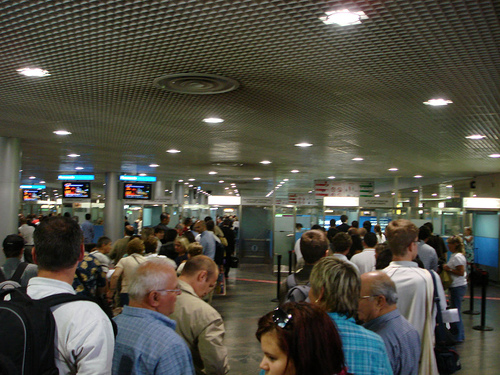While Russia is by no means a perfect state, most of the stuff you hear about in the media is exaggerated. Surprisingly, if you travel to Russia and walk around the streets you won't feel much of the problematics that you see in the news. All the authoritarianism and covert violence are well-covered by infrastructure and day-to-day life, which seems to be functioning even better than in most free democratic states. In that way, it's not so much different from China: a communist state where the cities like Beijing or Shanghai are more capitalist than their counterparts in the West. Here we clarify some of the myths that you can hear about Russia on the news. Our attempt is not to disband them but to, rather, remove a plethora of obfuscation that accompanies any myth and use it as a mirror for self-reflection. As you will see, most of the myths have a very interesting relationship with the truth. They expose underlying tendencies that are typical not only for Russia but also for so-called free democratic countries as well.
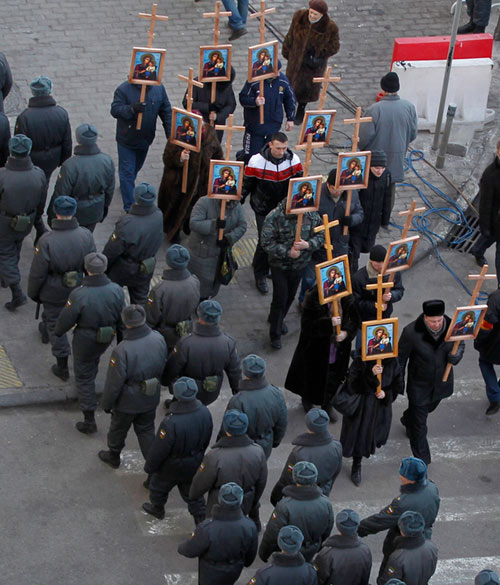
Myth: Russia is an authoritarian state with state-sanctioned censorship and propaganda.
Truth: No comment :)
Jokes aside, this myth is missing out on a lot of nuance. Let's start with the censorship and propaganda. Most of the censorship is actually done by the people themselves because they are afraid to lose what they have (money, freedom, the ability to live in Russia and to see their relatives etc). So it is more correct to say that censorship is not state-sanctioned, but, rather state-sponsored. Most of the propagandists are getting a lot of money (Vladimir Solovyov, who is, perhaps, the most obnoxious one, gets a whopping $1 Mln per month or $12 Mln a year), so they don't have any incentive to dissent from the general party line. Those who are not motivated by money are motivated by fear. A typical approach of a nation-state towards its subject, which exists in every country in the world, to some extent, but takes a more grotesque shape in Russia.
Regarding the authoritarian part, to use the Facebook relationship byline — "it's complicated". While a lot depends on one person — Vladimir Putin — he acts as a mediator between the different power groups and the population. The implicit arrangement here is to negotiate a certain consensus between the so-called "elites" and to then use state-controlled media to promote this consensus to be supported by the majority of the population. Is this authoritarianism or a perverse form of democracy that exposes the vulnerabilities also present in the West? The "special military operation" has shaken this arrangement considerably, so we are going to witness how it evolves. So far, we are witnessing a shift towards personification of authoritarianism. Too much depends on one person, but that is also making the whole system less resilient. The lack of institutions does not help.
Myth: Russia is an orthodox, conservative police state.
Truth: Police state — yes, partially, but not so much more than the US (which doesn't negate the fact either). A bigger problem is not the police but the ability of security services to have influence over day-to-day life. Due to a high level of corruption many political and business circles often use security services to promote their interests. This is a much bigger problem than the police. Day-to-day interactions with police are governed by law, in most situations. If you didn't commit any crime, you will most likely be treated in full accordance with the law, unless you're involved in politics. However, if you run a business or are involved in politics and happen to cross somebody else's interests, things may get more complicated and you will have to negotiate. Which makes Russia de-facto a quasi-police state.
Regarding the "orthodox" and the "conservative" part — it's a bit more complicated. There are a lot of people with orthodox and conservative beliefs. However, Russia had the most revolutions in the last 100 years than most "progressive" countries of the West, which is by no means orthodox (otherwise it would stay conservated for all this time). Russia dispensed ideologies like trends: monarchy to communism to democracy wild-west style to the "sovereign democracy" of today. Russian people are open to experiments even if they don't like them so much. They are also traumatized by them and that's why sometimes – in times of uncertainty – they grasp religion and brute force to make sense of the crumbling world around them. Besides, Russians hate rules, so even though the police are present and the cities are full of CCTV cameras, there is a strange sense of freedom, because "the strictness of the Russian law is compensated by the lack of necessity to follow it." Plus there is much more room for negotiation when something goes wrong, which is also the reason why Russia is so corrupt.
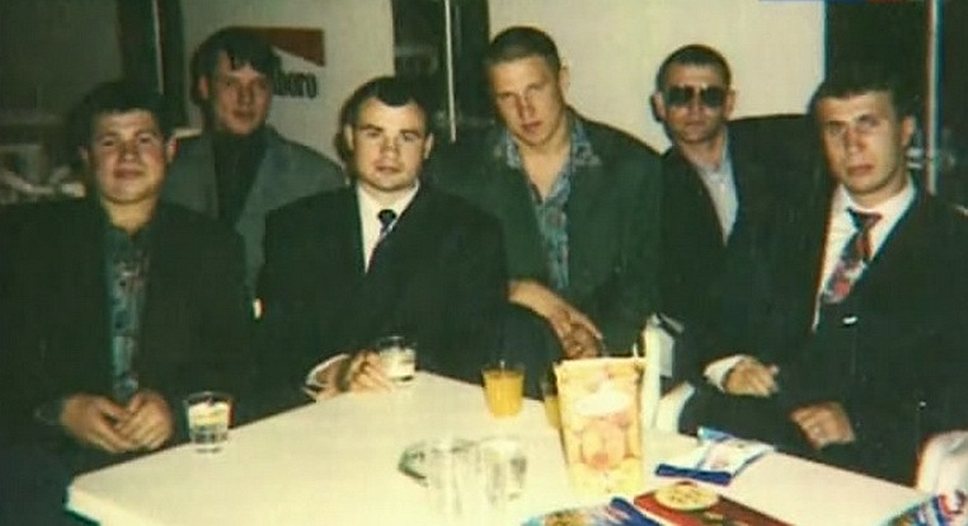
Myth: Russia is full of mafia and it's dangerous here!
Truth: Really, many people think that Russia is someplace filled with Mafia and it's so dangerous to come here. Well, there is Mafia, but the wild west nineties are left in the 20th century. Nowadays it's like any place in the world and Russia is not more dangerous than anywhere else. If you know where to stay, keep away from the "bad" places, do your normal traveler's things and practice your normal traveler's safety, you'll be okay. You can only have contact with criminals when you're into something illegal, like buying or selling drugs or are really looking for trouble. Really, think about it: why would anybody have problems because of you? The Mafiosi spend all their time making business, and the gangs spend all their time dealing with each other, so you certainly will not experience any of that. Also, there are so many police on the streets of Moscow it seems like the safest place in the world. Definitely places like New York and some areas of London are much more dangerous. There's no gang crime in Moscow, only serious stuff.
Also, you should know about the so-called "Gopnik". These are the working class youngsters hanging out in the poor neighborhoods. Back in the 90s, they could be a real nuisance, but these days they are more like endangered species. We at Way to Russia created a small online museum to keep them alive (at least in our memory), and you can check it out on Russki Beat's page. Or watch the educational video below:
Myth: It's a real hassle to travel to Russia – too much effort and paperwork
Truth: If you know how it's done then it's no problem. All the
paperwork you need is your passport and an
invitation from Russia. It's easy now to get the invitation (even in the current context), and you don't need to book a hotel for the whole period of your stay. The invitations can be made through hotels/hostels (which will ask you to book one night), or travel agencies (which will ask only for your money), and the price in both cases will be $25-$35 US for an invitation. The invitation can be sent to you by fax or e-mail. After you received the invitation (or its copy), you just need to bring it to the Russian consulate to get your visa. A Russian visa costs around $50-$60 US (for this price it's ready in 7-14 days), and if you pay more it takes only one day to process.
Transportation got more complicated due to the sanctions on airlines. However, you can still
travel overland through Latvia, Estonia or Finland (cheaper and longer) or fly in through Turkey, Quatar, or Armenia (more expensive).
Now, some people say it's too long and expensive to get here, but if you travel to Eastern Europe, Russia is really close and not expensive to get to. Besides, since a few years several no-frills budget airlines have had regular flights to Moscow from Germany and from Italy. So, a return flight to Moscow from Berlin may cost you only 100€ if you book early. Otherwise, a ticket from most European capitals costs $350 US return, and if you're on a tight budget, you can get one of those EasyJet or RyanAir flights from London or Berlin to Riga (Latvia) or Tallin (Estonia), and then get a bus or a train to Russia for $10-$25 US.
If you want to know more about these and other better options to get to (and from) Russia, check out our
Transportation section.
Learn more about the Russian culture, follow us on Instagram: @waytoorussian
Myth: There are so many catastrophes and bombings, I will die!
Truth: Not more than anywhere else. It's just that Russia is a very big country and it's size is like both Europe's and United States', do you think there are more disasters happening in Russia than in the whole Europe and United States together?
Myth: Ok, but what about Chechnya and the terrorists?!
Truth: You might be thinking more about it than we do, really. Of course it's sad that the situation in Chechnya is unstable and we regularly get reports about people being murdered there in some sort of small local conflicts (mostly between the local centers of power), but however cynical it sounds, we got used to it. People live their lives and try to be as happy as they can. Unfortunately for most Russians Chechnya is like a bad dream – it affects you, but it's so far from your reality that you tend to forget about it. Chechnya seems to be very far away and unless you travel there, you most probably will hear about it only on the news. There are occasional terrorist attacks still, but nobody knows if the Chechen guerillas, who often assume responsibility, were really involved or just use the events to promote their agenda. Nowadays, a terrorist attack always has a chance to happen in other other country, so in this sense it is as dangerous as anywhere else nowadays, unfortunately.
We think that actually it would help a lot if the attention in the media shifted from the political aspect of the problem towards the social one. There are a lot of people without a shelter, lots of orphans left after the war. If all the propaganda effort goes towards humanitarian causes, we believe it will do much more good than constantly talking about the fragile peace and the means through which it was achieved.
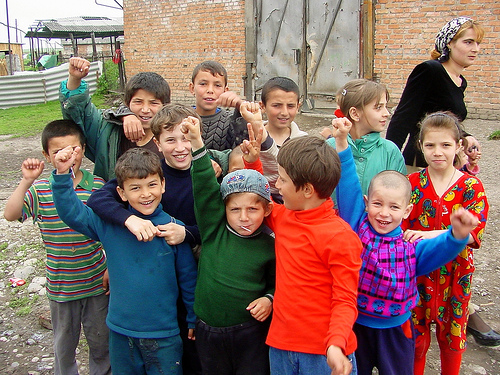
Myth: The economy is destroyed and not at all diversified, Russia has no future!
Truth: The funny thing is that two years ago we'd just say it's not true: look how fast the GDP is growing, look at the millions of people who managed to climb from the poverty in the last few years.... Well, nowadays things are quite different. After the financial crisis hit the country it became very obvious that you can't build a solid economy on natural resources, like oil and gas. On one side it made things quite unstable again. On the other side, many people finally got a kick in their ass and started to do something about innovation rather than thinking about it. The bottom line is that Russia still has a huge human resource potential. Even though the education is hopelessly outdated, the economy is hopelessly dependent on the outside markets and not at all diversified... We still have small grass-root initiatives here and there that keep Russia on the international map (for example,
tandp.ru below). If the society (and through it – the government) realizes that it should nurture these attempts and give resources to talented and passionate people instead of bureaucrats, we'll see a very fast rise and diversification of the economy.
Anyway, there's still a huge progress from empty shelves and overall poverty in the end of 80s and the average country-wide wage of $500 US these days ($1000 US in Moscow). In just 20 years millions of Russians climbed out of poverty and are able to lead normal lives and think about their future and their children having a comfortable life. So, things are getting better, just not as fast as they could have.
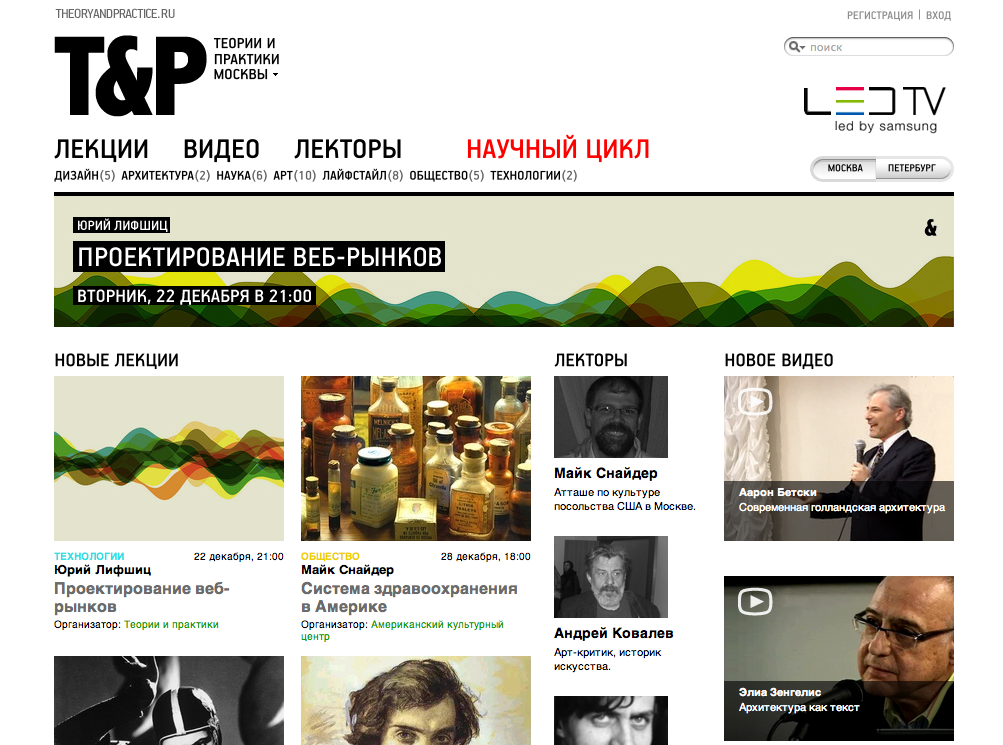
Myth: The winter is so cold in Russia!
Truth: It's not very cold, though sometimes it might be quite freezing. But if you have warm clothes, you'll be ok. Generally, the lowest is minus 10 or 15 Celsius in the winter, though it might sometimes (rarely) go as low as minus 25 or 30, but even that is not very cold, because it's not humid. And the true thing about Russian winter is that it's very beautiful, that is right. I like it!
Myth: Many Russians are racists, arent' they?
Truth: Russians are not racists. Even in the communist time people were raised up on the idea that everybody was equal. The only thing is that few middle-aged and old people have something against the States. But they'll not insult or offend a tourist because of that. Just don't hurt anybody's patriotic feelings.
Anyway, Russians are more often than not very open and generous to the foreigners.
Myth: Russians drink too much... way too much...
Truth: Maybe, but after ages of driking they have a strong immune against alchohol, so they don't become drunk too fast. Also vodka is considered to be the best thing to warm oneself up with in winter. And, in fact, I have the same stereotype about .. uhm... British. Do they really drink as much beer every day as they say?
Seriously, alchoholism is a big problem in Russia, especially among older people. After the collapse of Soviet Union, many people got lost and instead of dealing with the new challenges, they decided to escape their problems through drinking. Because of that, families are unhappy, many people are unemployed, people don't want to build something new, but want to drift into the 'careless' state of mind and not to do anything.
Myth: Putin is the new Tsar, your country has a dictatorship and no democratic freedoms.
Truth: Only a few years ago we wrote that Putin was just a very popular politician and that he acts accordingly doing what the majority wants him to do. Nowadays things have changed. The recent events of 2011, the decision to run for the third extended presidential term, the rigged parliamentary election, the unwillingness of the current government to ease the political processes in the country have angered a lot of people, especially those who consider themselves to be middle class.
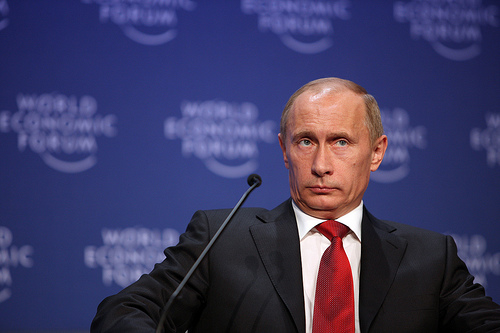
Lots of things have improved in Russia during the first 8 years (unofficially 12) of his reign. Putin was good for the country at the beginning of the 2000s when all people wanted was stability. Russia is a huge country, somewhat even uncontrollable, so many people were happy to see someone with a strong hand being able to manage this mess and regain respect internationally (at least compared to Eltsin's times). However, after a few years, it also became clear (at least to the people who think beyond the official news discourse) that Putin's main power and talent is in usurping and controlling the media. He is a professional actor and in that he is also a professional politician. He managed to get complete control over the major media outlets in the country, therefore, being able to shape public opinion in a way that corresponds to the ideology that he expresses. This is when the system he built started to short-circuit itself because it got into a feedback loop and stopped listening to what people wanted.
Many people realize that Putin is not the man you see in the pictures. There is a dynamic combination of various power interests and this man just happened to be a good mediator that managed to keep a sort of balance between the different forces that want to control the Russian political life. Therefore, yes, in this sense Russia is a dictatorship but the dictators are the semi-government corporations that see Russia and the Russian people as the resources they can use to increase their profits. Whatever is left from democratic freedoms is just something to make "corporation Russia" look good in the outside world. It's a huge spectacle directed by the Kremlin's spin doctors and it's not a coincidence that film and theater directors are so popular among Russian politicians.
So to answer this myth, Russia is not a dictatorship of one man, but, rather a dictatorship of a combination of different groups where Putin is a mediator, so he has a final say but in a way where he has to please the circles which he is surrounded by while also manufacturing a wide societal consensus through state-controlled media. The monopolized information machine usurped by this team of people is working to enslave the population with promises of a stable future. The best people get so far is the "euroremont" - a cheap cosmetic renovation of their surroundings. Russia is in a state of ideological dictatorship and as long as people continue buying the myth of stability versus development and personal growth it will stay the same. Hopefully, people like Navalny could have changed something, but it would only happen if there were thousands of them. The first change would be to create institutions that really work, like independent courts, independent governing systems, watchdogs, press. But that is hardly possible in the current context.
During the last years, especially during the "special military operation", the ideology of "stability" was exchanged for the ideology of the "chosen people". If you are interested to learn more about it, you can watch the interviews of a Russian philosopher Alexander Dugin on YouTube, who is one of the most visible proponents of the "Russian World" ideology. In a nutshell, the idea here is that the USA is a hegemon and its totalitarian rule will destroy the planet. Russia and the Russian people have to stand up to this evil, even at the expense of their lives, and bring the world back into the "multi-polar" state. That ideology is much more effective than the previous version based on "stability", because you can justify the deterioration of the quality of life with the "sacred fight" for freedom. It is also very compatible with the highly relevant notion of "sacrifice" that is so well-received by the Russians, due to the cultural and historical predicament they find themselves in. Obviously, in this context, the notions of "democracy" and "freedom" shift to the background. What emerges at the forefront is the dictatorship of ideas, guided by a "higher purpose", a totalitarian way of thinking that takes hold of the psyche and of the mind. And it is a much bigger problem than one man, the one that is present not only in Russia, but also around the world. Especially because its biggest danger is to elicit a similar response on the other, opposing side.
Myth: Privatization
Truth: It's a myth. During the privatization in the 90s every single Russian person (even children) got a "piece" of the country in the form of a voucher. Most of them didn't have anything else. So, a director (who was not paying them any salary) told them: "you'll get your salary, but you need to give me the voucher you have".
It's like you are invited to a casino and you are given a chip. But you don't have any money. Then the manager comes up to you and tells you not to risk and just give you your chip and get 10 bucks instead.
The same thing happened in Russia: the vouchers (or shares) accummulated in the hands of directors who were then selling it to big players. The big players would make their stakes and only 1% survived and now own the majority of production in Russia. The people who sold their vouchers stayed where they started and that's why there's a lot of social tension in Russia nowadays.
At least one positive thing is that the middle class is now forming in our country, so the gap is not that huge anymore. But this little story explains why so many people approve that even such an intelligent and charming man as Yukos' former Khodorkovsky is made into criminal. What they don't want to understand though is that the "casino managers", those who gave them the chips first place, and they themselves are responsible, too.
Learn more about Russian culture, follow us on Instagram: @waytoorussian





